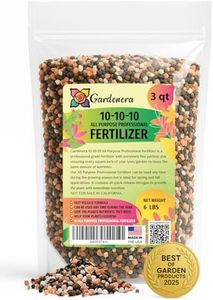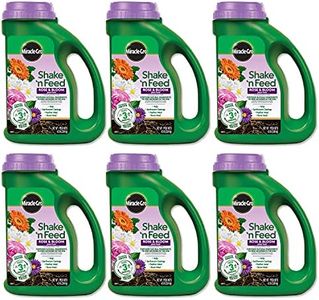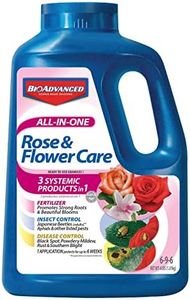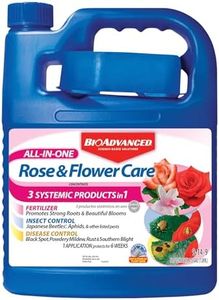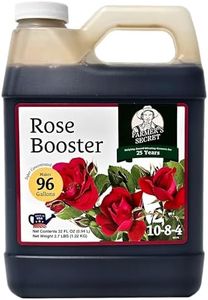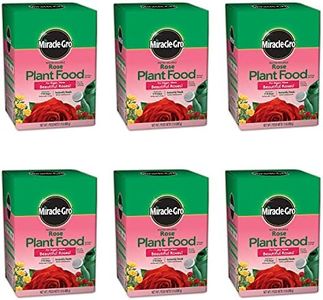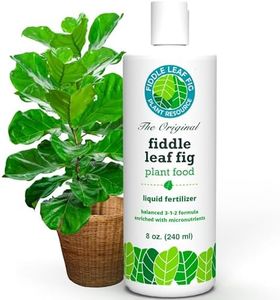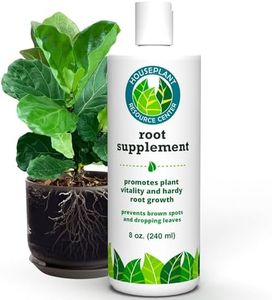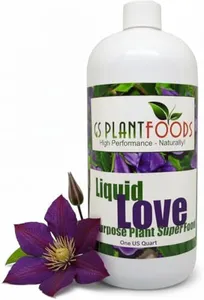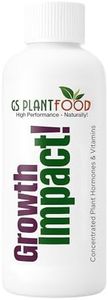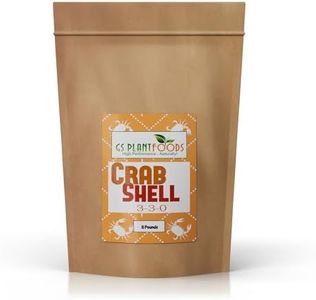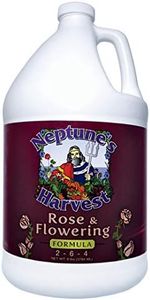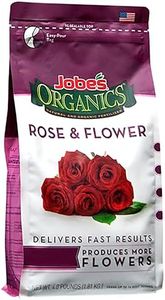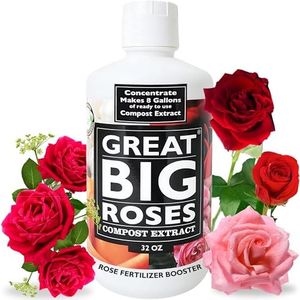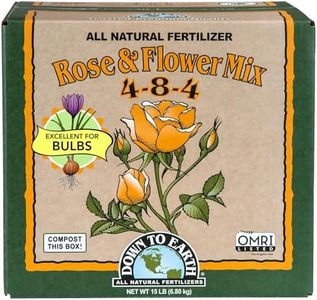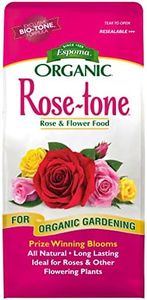10 Best Rose Fertilizers 2026 in the United States
Our technology thoroughly searches through the online shopping world, reviewing hundreds of sites. We then process and analyze this information, updating in real-time to bring you the latest top-rated products. This way, you always get the best and most current options available.

Our Top Picks
Winner
Miracle-Gro Shake 'N Feed Rose & Bloom Plant Food, Plant Fertilizer, 4.5 lbs. (6-Pack)
Most important from
5299 reviews
Miracle-Gro Shake 'N Feed Rose & Bloom Plant Food is designed to support roses and other flowering plants by promoting more blooms and vibrant color. It contains natural ingredients that help improve soil health, which is beneficial for those who prefer products with organic qualities, although it is technically a synthetic blend rather than fully organic. One of its standout features is the slow-release formula that feeds plants for up to three months, reducing how often you need to apply fertilizer. This convenience helps take the guesswork out of feeding schedules, making it user-friendly for gardeners of all experience levels.
The granule form is easy to apply whether your roses are in the ground or containers. This fertilizer is suitable for those who want a reliable, low-maintenance feeding option that promotes blooming and healthy growth without complicated application steps.
Most important from
5299 reviews
BioAdvanced All-In-One Rose and Flower Care I, Granules, 4 lb
The BioAdvanced All-In-One Rose and Flower Care is a well-rounded choice for those looking to enhance their rose plants' health with minimal effort. Priced for convenience, this granule-based fertilizing product also serves as an insect killer and fungicide, making it a three-in-one solution. It works by promoting strong roots and vibrant blooms thanks to its effective formulation. The fertilizer is synthetic, which ensures a quick uptake of nutrients by the plants but may not be suitable for those specifically seeking organic alternatives.
The product also controls pests like Japanese Beetles, Aphids, and Leafhoppers, and combats diseases such as Black Spot and Powdery Mildew with its fungicidal properties. One notable advantage is its rainproof protection that lasts up to six weeks, reducing the need for frequent reapplication. However, the restriction in New York might be a limitation for some users.
The granule form makes it easy to apply, and it can be used for both indoor and outdoor plants, adding to its versatility. The product size is manageable (4 pounds) and should cover a reasonable number of plants. It's a strong choice for gardeners looking for an all-in-one rose care solution, especially those dealing with pest and disease issues, though it may not meet the needs of organic gardeners.
BioAdvanced All-In-One Rose and Flower Care Fertilizer, Concentrate, 64 oz
Most important from
13334 reviews
The BioAdvanced All-In-One Rose and Flower Care Fertilizer is a liquid concentrate designed not only to nourish roses but also to protect them from common pests and diseases. This product combines fertilizing with insect and disease control, which is convenient for gardeners looking to simplify rose care. It contains synthetic active ingredients like Imidacloprid and Tebuconazole, offering effective protection against pests such as aphids and Japanese beetles, and diseases including Black Spot and Powdery Mildew.
The product is rainproof for up to six weeks, meaning you don't have to reapply frequently, which is helpful for busy gardeners. Application is straightforward—mix the concentrate with water and pour it at the base of your roses, avoiding leaf contact to prevent damage. If you prefer organic fertilizers, this product would not fit since it's synthetic.
This fertilizer is well-suited for gardeners who want an easy-to-use, multi-purpose product that feeds roses and protects them from pests and diseases without frequent reapplications. However, if you’re looking specifically for an organic option or a product focused solely on feeding with detailed micronutrients, this might not fully meet those needs.
